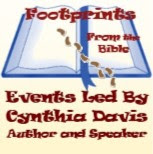Through Lent, we’ll travel the Road to Jerusalem
and to the Emerald City.
What can these two very different paths teach us? Like Dorothy in Oz, we are
each seeking a way to ‘get home’ and find the love and security that can only
be found in God. Hebrews 11:13-16 reminds us that we are “strangers and exiles
on the earth…[desiring] a better country…for [God] has prepared for [us] a
city. Jesus “set his face to go to Jerusalem”
(Luke 9:51) because he knew that his
journey would open the door for us, to that city. Dorothy found herself on a long
road through Oz to find someone to help her get home. Jesus also traveled a
long road to the Holy City.
Come follow their paths and see how it might change your Lenten journey.
Where
does Jesus’ Road to Jerusalem
start? When Jesus is baptized and begins to call his disciples he and they step
onto the road that will ultimately lead to Jerusalem.
(Mark 1:9-20) The every day life of Peter and Andrew, James and John, was about
to be dramatically changed. A catalyst entered their life, similar in some ways
to the tornado that scoops Dorothy up and spins her off to Oz.
Dorothy
was an ordinary girl living in Kansas-perhaps not too happy with her situation,
but it was the life she knew. The disciples, too, were going about their daily
routine of fishing and selling the fish and cleaning the nets for the next day.
Rather boring, but predictable. I know I go through my days in a fairly
standard cycle, too. Breakfast-feed cats-check computer-go to work-come
home-writing-dinner-TV-bed.
Into
the lives of the disciples and Dorothy comes a catalyst that changes them. For
the disciples it is Jesus saying “Follow me and I will make you fishers of
men.” For Dorothy the tornado whirls her out of the everyday bland life into a
life full of danger and unexpected things.
I recently
heard that there are two sorts of problem solvers: those who see opportunity in
every difficulty and those who can only see difficulties in opportunities.
Jesus taught his disciples how to look for the opportunity no matter what the
apparent difficulty. Dorothy could only see the difficulties in her situation.
In Kansas her life was boring and
repetitive. Even in Oz she discovers that there are more difficulties: witches
and ‘lions and tiger and bears, oh my’, and a wizard who isn’t the solution. As
we’ll see, it took the catalyst of saving her friends to help her find the
opportunity (a bucket of water) in the difficulty. For the disciples it took
the seemingly impossible-to-overcome difficulty of the Jesus’ crucifixion to
understand that God is greater than any problem.
The
Book of Ruth in the Old Testament tells the story of a woman who also had to
step out on a journey to discover God. Naomi’s life in Bethlehem
started out fine, but then came the catalyst of drought and famine. Her husband
decides to look for greener pastures in Moab
and so her journey starts. “In the days when the judges ruled, there was a famine in
the land, and a certain man of Bethlehem in Judah went to live in
the country of Moab, he and his
wife and two sons. The name of the man was Elimelech and the name of his wife
Naomi, and the names of his two sons were Mahlon and Chilion; they were
Ephrathites from Bethlehem in Judah. They went into
the country of Moab and remained
there.” (Ruth 1:1-3)
What
catalyst is there in your life? Lent is a catalyst because it offers a set
length of time in which to try new disciplines or ministries. Are you up to the
challenge to try something new, to step out of your comfort zone this Lent?
Maybe it is a simple (or hard) as starting to look for the opportunities in the
difficulties rather than focusing on the difficulties. Perhaps it’s a new phase
in your life, or it could just be spending more time with God in quiet and
prayer.
Next time we’ll start down the road to Jerusalem and the Yellow Brick Road. They look wonderful and seem to be the answer to all
problems.











